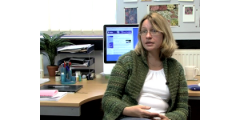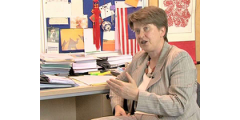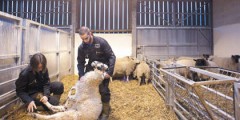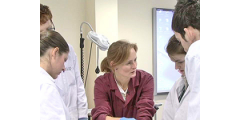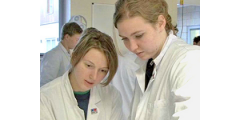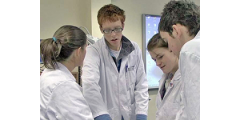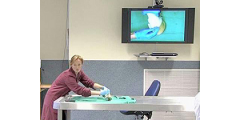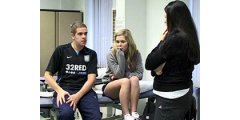The staff experience of learning from internationalisation
September 30, 2009
Video >> Martin Binks, NUBS: “Certainly teaching in other countries, which I’ve done quite a bit of, you learn a huge amount because there are suddenly areas of behaviour or attitudes that you’ve never come across before. “It has made me recognise the need to get feedback from the students in their body language and …
Connecting international teaching with research
September 29, 2009
Video >> Nicola Pitchford, School of Psychology: “I’ve had students that have done projects in Hong Kong and China and Spain. I’ve had PhD students from the Netherlands and from Greece. And, you know, for me, it’s very interesting because my own research is involved with education and with language learning and literacy acquisition. So, …
Reciprocity: learning from the international experience.
September 28, 2009
Video >> Chris Ennew, NUBS: “I think the reciprocity thing operates at a number of different levels, so we could talk about a very macro institutional level, that as an institution, we get to learn a lot more about some of the challenges of operating in different environments, and in turn, we offer insights into …
Perceptions of first year undergraduates of facilitated and non-facilitated small group learning environments
September 20, 2009
Kevin Gough, Karl Klisch, Rachael Tarlinton and Lisa Yon: “Student-centered learning is of growing importance within Higher Education and increasingly includes student-led as well as facilitated small group learning environments. The School of Veterinary Medicine and Science has adopted both of these approaches, with students undertaking facilitated clinical relevance (CR) and non-facilitated directed group learning …
The role of practicals in an integrated curriculum
August 2, 2009
Video >> Sarah Freeman: “The way that the curriculum is organised, we have a small number of lectures, they will have three cases that they’ll work through during the week, and then we try and theme the week and the skills and the practicals and the lectures, everything around that. “So the cases illustrate again …
Involving qualified professionals in lab-based practicals
Video >> Video playing: “The equipment you will need is clippers, swabs, antisceptic scrub and surgical spirit, methods of restraining the horse, clean sterile bottles of local anaesthetic, sterile needles, and sterile syringes. Nerve blocks involve the injection of local anaesthetics…” Sarah: “We have some people who volunteer to come along and some people that we …
Learning communication skills from groupwork in practical sessions
Video >> Video playing: “You should always clip before performing an ultrasound examination. Air and dirt trapped within the animal’s coat will interfere with the transmission of ultrasound and prevent you obtaining diagnostic images.” Sarah: “They work in groups through quite a lot of the practicals so a number of the skills that they have …
Demonstrating practical skills to large groups using an overhead visualiser
August 1, 2009
Video >> Sarah Freeman: “We start almost all of our practical classes off with some sort of demonstration showing the students where they’re supposed to be looking at things, what they’re supposed to be doing, and then allow them to go and spend the time working, working it out for themselves.” Sarah demonstrating with the …
Assessing the learning impact of electronic revision aids
July 28, 2009
Derek Irvine, Deborah Kays, Darren Walsh: Background: “Traditionally, weekly small group tutorial/example classes are used within the School of Chemistry / Faculty of Engineering (Chemical Engineering) to enhance student understanding of material delivered during lectures. By relating exam performance to tutorial attendance, both departments recognize that these sessions are highly beneficial to students’ learning. The …
Giving feedback on practical sessions via a podcast
June 10, 2009
Video >> Sarah Westwater-Wood: “In the Therapeutics Studies module I teach three groups the same thing every week and they’re two hour long lectures and it’s quite intensive delivery of manual skills and underpinning knowledge. When I finish the week’s practical sessions I realise that there are common things that I want to feed back …


